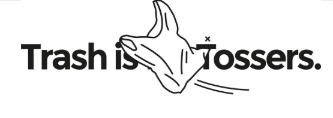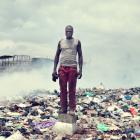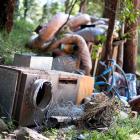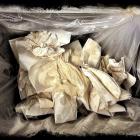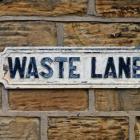Zero Waste?
Waste has an expiration date. My last “truism” about the life of waste points to the phenomenon where, in today’s era of mass consumerism and throw-away culture, a rising storm of voices is calling for radical changes in our littering behavior and our consumption and production patterns. Actors from all levels, from the municipal to the national and international level, as well from the individual to the corporate level, are engaging with technological solutions as well as human behavioral engineering practices. They all broadly aspire to the idea of “zero waste,” although this may mean different things in different contexts. Explore the RCC Perspectives issue “A Future without Waste? Zero Waste in Theory and Practice” to learn more.
The original virtual exhibition includes the TEDx Talk “How the oceans can clean themselves” by Boyan Slat. Click here to view the talk online. 11:21 min.
Mainstream ideology often sees waste as a technical or management problem. Garbage is merely a wrongly placed resource. For decades there has been a dream, a hazardous hope almost, of a technological fix and sufficient technological progress that will one day solve the garbage problem. It is not necessarily a false dream, however. Over the past decades, industries have developed myriad patterns of green entrepreneurship, as illustrated by Geoffrey Jones. In Making a Green Machine, Finn Arne Jørgensen examines the development of the Scandinavian beverage container deposit-refund system from 1970 to present. Solutions need not always be technological fixes, however. Boyan Slat reminds us in his TED Talk “How the Oceans Can Clean Themselves” how the currents and waves of the oceans can help improve technological solutions while at the same time keeping the costs low for extracting plastic waste from the oceans.
The original virtual exhibition features an interactive gallery of book and film profiles and articles showcased on the Environment & Society Portal. View the individual gallery items online or in the appendix of this PDF.
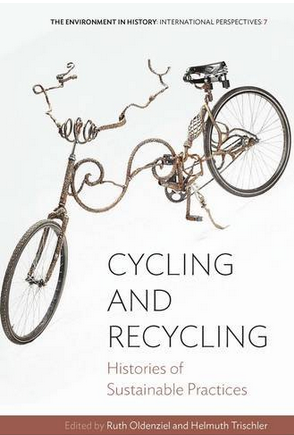
Modern technology is an important factor in public discussions of the environment. In recent years, however, activists, researchers, and policymakers turned to older technologies in their pursuit of sustainability. The case studies explore the historical fortunes of bicycling and waste recycling, tracing their development and providing valuable context for the policy successes and failures of today. (Adapted from Berghahn Books)
Learn more
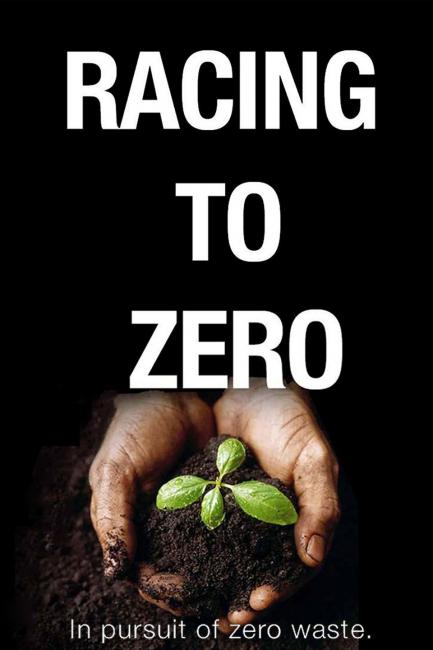
In order to reach zero waste, we need to change our relationship to garbage. As a resource, garbage can take on another life, stay out of landfills and be reused and recreated over and over again. By tracking San Francisco’s waste management strategies, Racing to Zero examines today’s cultural garbage practices in terms of consumption, preparation, use and production. (Adapted from the Official Film Website)
Learn more
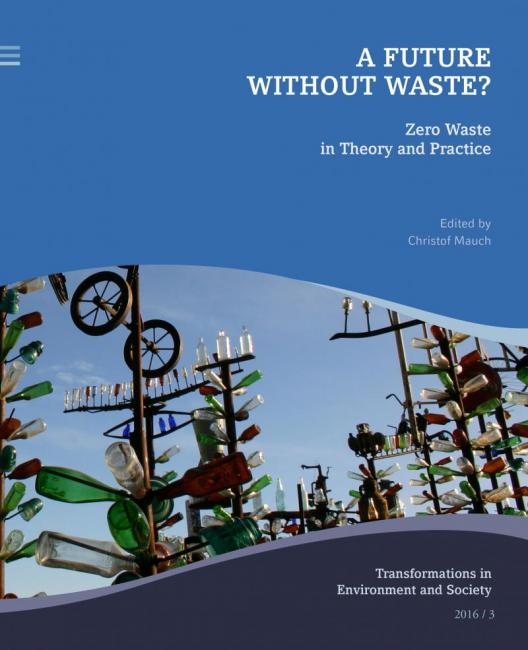
In the era of modern consumerism, many are calling for radical lifestyle changes and companies are embarking on ambitious plans to become “zero waste.” But is a world without waste truly achievable? The essays reflect on the feasibility of creating closed material cycles and explore real-world examples of challenges and successes on the way to zero waste. (Adapted from author’s abstract)
Learn more
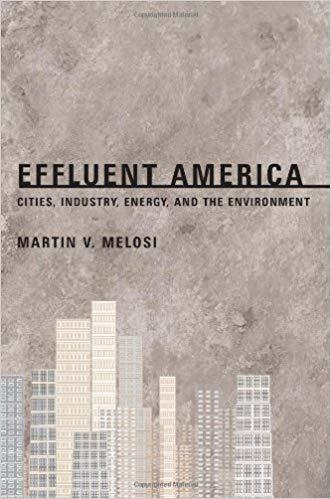
Melosi looks at the relationship between industrial expansion and urban growth, charting the development of city services, their implementation, and how they affected growth during the Industrial Revolution and beyond. He explores the environmental impacts of unprecedented methods of production, the influence of new forms of energy, and changing patterns of consumption. (Adapted from University of Pittsburgh Press)
Learn more

Boyan Slat combines environmentalism, entrepreneurism, and technology to tackle global issues of sustainability. After diving in Greece, and coming across more plastic bags than fish, he wondered; “why can’t we clean this up?” While still in school, he decided to dedicate half a year of research to plastic pollution and the difficulties of cleaning it, leading to his passive clean-up concept. (Adapted from TEDx Talks)
Learn more

Our misplaced loyalty to economic growth and our focus on industrial development have resulted in significant harm to the environment. Yet many wonder if zero waste is a realistic goal. Tian Song argues that it is an impossible deal but proposes that the idea of zero waste can provide valuable insights into how we could establish a future ecological civilization. (Adapted from author’s abstract)
Learn more
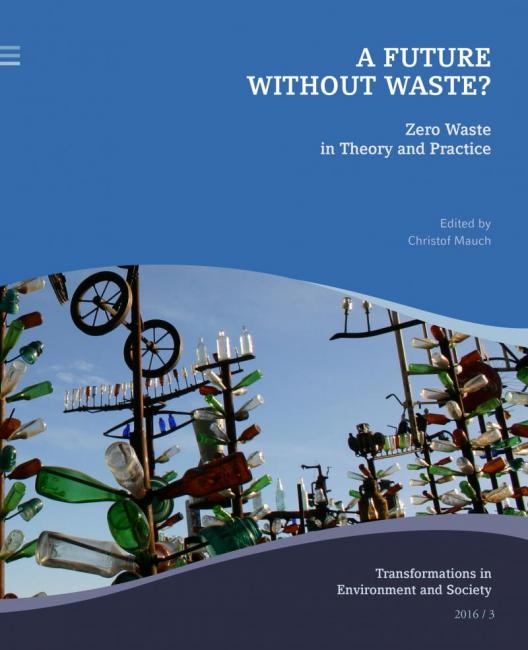
When mayor Gustavo Petro introduced a new garbage program that would allow informal recyclers to receive proper wages, his plans failed dramatically. Private waste collectors protested his plans and let waste accumulate on the streets. Petro’s plan resulted in a hygienic crisis and garbage became a battlefield upon which the struggle for social reform was carried out. (Adapted from author’s abstract)
Learn more

Grant and Jen go head to head in competition to live zero waste for an entire year. The documentary shares moments of humor, struggle, and hope of a couple who asks the question, “what can an individual do?” As they start to garner interest in their project, they struggle to find meaning in their minuscule influence on the large-scale environmental impacts of our “throw-away society.” (Adapted from the Official Film Website)
Learn more
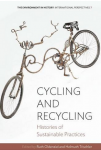

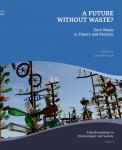





The dream of the technological fix has been flanked by ideas of behavioral engineering—just as people have been taught to be wasteful in the aftermath of World War II, as Susan Strasser uncovered in her book Waste and Want, they can now be taught to be waste-mindful and to litter less, reuse or recycle.
The original virtual exhibition includes an interview with Prof. Dr. Simon Werrett on “Recycling and the History of Science and Technology.” 23 May 2013. 4:16 min.
Recycling is not a new practice. Follow the work of early modernist Simon Werrett or read through Ruth Oldenziel and Helmuth Trischler’s edited volume Cycling and Recycling to learn how activists, researchers, and policymakers have increasingly turned to mobilizing older technologies in their pursuit of sustainability. Case studies range from early modern secondhand trade to utopian visions of human-powered vehicles. In her paper “Everything Circulates,” Marla Erland tells you about nineteenth-century theories of recycling in agricultural chemistry.
While everyone can play their part to achieve the goal of sustainable living, since the 1990s increasing emphasis has been placed on the power of the city. In contrast to the national, let alone the international level, scholars are convinced that it is cities that are best able to get the job done. Japan, for instance, has one of the most efficient eco-town systems in the world. Many of the world’s major cities, such as San Francisco or New York, have pledged themselves to the ideal of zero waste. Watch the movie Racing to Zero to learn how San Francisco plans to accomplish its goal of zero waste by 2020. This upbeat movie conveys the message that cultures can be transformed. Stefania Gallini’s article on Bogotà’s attempted transition to zero waste, in contrast, cautions readers to think about the difficulties involved in changing a governmental system. Check out the Ecopolis München virtual exhibition to read about Munich’s history of waste management.
Art has become a powerful language for raising awareness about the problems attached to waste, and many artists like Vic Muniz have discovered waste as a source of creativity. Plastic and plastic waste, in particular, has been a source of inspiration for many artists to point to the detriments of a world of consumption based on an oil regime. These artworks expose trash in a variety of forms and help the viewer visualize, acknowledge, and critique larger systems in which plastic waste circulates and operates. In the work of art historian Amanda Boetzkes, you can learn how myriad artists have revived plastic waste in their art. In their contributions to the blog Seeing the Woods, artists Judith Selby and Richard Lang introduce you to their project of creating art from marine-born plastic waste along Kehoe Beach in the Point Reyes National Seashore. Similarly inspiring is the movie Gyre: Creating Art From a Plastic Ocean, which documents the work of a team of scientists and artists investigating the buildup of marine debris along the Alaskan coast.

“With the help of a volunteer team, we collected plastic from a stretch of Matagorda Island in Texas, strung it on brass wires, then hung it from the ceiling to represent the plastic floating in the ocean.” Caption and photograph courtesy of Judith Selby and Richard Lang, 2017.
“With the help of a volunteer team, we collected plastic from a stretch of Matagorda Island in Texas, strung it on brass wires, then hung it from the ceiling to represent the plastic floating in the ocean.” Caption and photograph courtesy of Judith Selby and Richard Lang, 2017.
Photograph courtesy of Judith Selby and Richard Lang, 2017.
The copyright holder reserves, or holds for their own use, all the rights provided by copyright law, such as distribution, performance, and creation of derivative works.
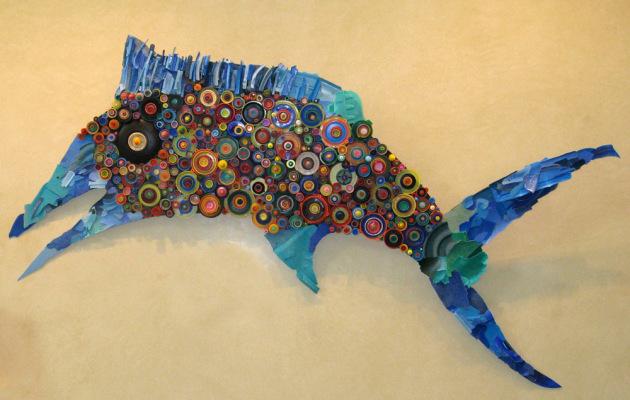
“Trophy Fish.” Caption and photograph courtesy of Judith Selby and Richard Lang, 2017.
“Trophy Fish.” Caption and photograph courtesy of Judith Selby and Richard Lang, 2017.
Photograph courtesy of Judith Selby and Richard Lang, 2017.
The copyright holder reserves, or holds for their own use, all the rights provided by copyright law, such as distribution, performance, and creation of derivative works.
A growing number of people have taken on the challenge of living waste free. Lauren Singer, Katryn Kellogg and Olga and Gregor are only a few of many. Their blogs, Trash is for Tossers or Going Zero Waste serve as an additional source of inspiration, as do the movies, Recipes for Disaster and The Clean Bin Project, which offer humorous and thought-provoking insights into living waste-free lives. Finally, do not leave this exhibit without playing a round of Garbage Dreams below. You’ll see that recycling can be fun—and addictive. What was once waste is given new life and the (re)cycle begins again.


